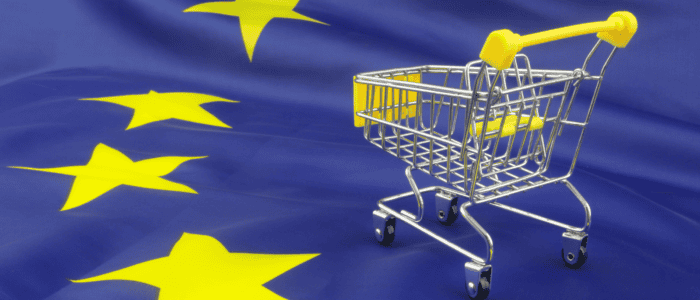Published
Webinar Summary: The Letta Report and How to Align Ideals and Action in Europe’s Single Market
By: Matthias Bauer Guifré Margarit i Contel
Subjects: EU Single Market European Union

Our webinar “The Letta Report and How to Align Ideals and Action in Europe’s Single Market”, held on 9th July 2024, convened experts to discuss strategies for revitalising the European Single Market amidst evolving global dynamics. The discussion featured insights from Enrico Letta, Luukas Ilves, and Radovan Ďurana, moderated by ECIPE Director Matthias Bauer.
Enrico Letta, the President of the Jacques Delors Institute and former Prime Minister of Italy, opened the session with an emphasis on the transformative potential of the Single Market. He highlighted the historical context and current challenges, noting the urgent need for reforms to maintain the EU’s competitiveness. He stressed that the Single Market is “Much More Than a Market,” reflecting its crucial role in the lives of EU citizens. Mr Letta outlined his report’s bottom-up approach, involving extensive consultations across Europe. He articulated four cardinal points shaping the report:
- Geopolitical Changes: The world has changed dramatically since the creation of the Single Market.
- Cohesion Policies: Integral to ensuring balanced development across the EU.
- Sectoral Integration: Energy, telecom, and financial services remain under national control, necessitating EU-wide integration.
- Sense of Urgency: Immediate action is required to halt the EU’s relative decline.
Mr Letta proposed three roadmaps focusing on the integration of energy, telecom, and financial services. He underscored the importance of avoiding treaty changes to enable swift implementation of reforms. Highlighting the need for regulatory harmonisation, Mr Letta remarked, “The present telco industry situation is a disaster because of the lack of investments, the lack of scale, dimension.” He also advocated for the addition of a fifth freedom to the EU’s four fundamental freedoms: knowledge and innovation.
Luukas Ilves, former Deputy Secretary General of Estonia’s Ministry of Economic Affairs, followed by praising the comprehensive scope of Mr Letta and his team’s report. He identified political and security concerns as major barriers to integration in telecom, energy, and capital markets. Mr Ilves noted that while Estonia supports the Single Market, various member states’ red lines and demands for flexibility complicate unified action. He stated, “The question is, how do we actually go about doing this, and what is feasible, given the politics?” He also emphasised the importance of prioritising and implementing reforms effectively to avoid legislative outcomes that might not improve the current situation.
Finally, Radovan Ďurana, Senior Analyst from Slovakia’s INESS, highlighted the significant economic benefits Slovakia has reaped from the Single Market. However, he noted the EU’s declining share of global GDP, attributing it partly to protectionist and over-regulatory tendencies within member states. Mr Ďurana expressed concern over cultural attitudes towards economic growth in Europe, stating, “The European regulatory culture is very protective.” He supported further integration, especially in financial services, as essential for financing the energy transition and enhancing competitiveness. Addressing regulatory challenges, Ďurana remarked on the resistance from member states to transposing EU directives.
The panellists discussed the importance of fostering a sense of urgency among EU policymakers. Mr Letta warned that “inertia means decline,” stressing the need for proactive measures. The conversation also touched on the potential consolidation within the telecom, energy, and financial sectors. Mr Ilves and Mr Ďurana both supported the notion that greater market integration would ultimately benefit consumers through increased investments and innovation.
Mr Letta and Mr Ilves both acknowledged the importance of balancing regulatory harmonisation with the protection of national interests and security concerns. They pointed out that effective implementation of existing legislation could significantly advance the Single Market.
The webinar concluded with a consensus on the necessity of revitalising the Single Market to sustain the EU’s economic vitality. The Much More Than a Market report was recognised as providing a robust framework for necessary reforms. The speakers called for concerted efforts from EU institutions and member states to implement these recommendations, ensuring the Single Market adapts to contemporary and future challenges.
In summarising the discussion, Matthias Bauer emphasised the need for optimism and determination in pursuing these reforms, encouraging a collaborative approach to maintain and enhance the Single Market’s foundational role in European integration and prosperity.
You can watch the full event below: